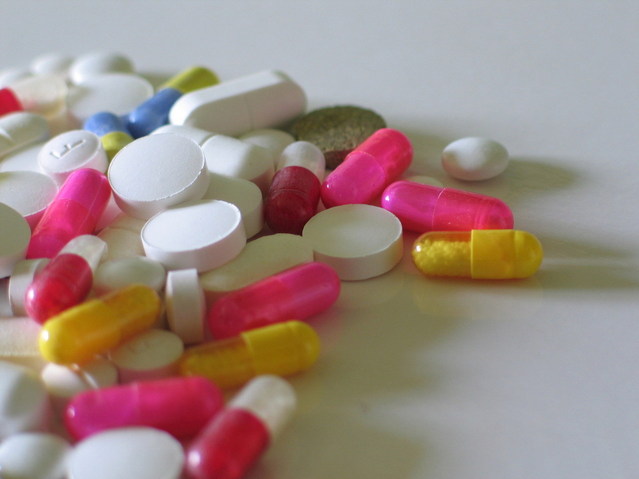Our lives are slowly changing and mostly for the wrong reasons. Right from the food we eat to the air we breathe has components that negatively affect our physical well-being. There are several reasons for this, which are discussed in the following points:
A Sedentary Lifestyle
Nowadays, a sedentary lifestyle is one of the major causes of ill health. It’s a kind of lifestyle wherein a person does not get the requisite amount of exercise, needed for good health. The WHO estimates that over 85% of the population all over the world is physically inactive, thus increasing their chances of a wide variety of diseases. Lack of physical exercise and simple moving around can cause anything from coronary heart disease to cancer to hypertension to diabetes.
A long period of physical inactivity also puts people in the high-risk category of certain types of cancers, anxiety, depression and cardiovascular disease. People who are generally inactive are more likely to become overweight or obese. Their blood pressure and cholesterol levels are also elevated. They also lessen their skeletal muscle mass.
If you sit still for long stretches of time, say, for more than five hours, you may die a premature death. They have a 40% higher risk of chronic diseases.
Due to all these reasons, a sedentary lifestyle has become one of the leading causes of poor health in this century.
The Use of Fats
Fat! The three letters commonly dreaded by dieters, exercise professionals and common people worldwide. Every day, new fads with relation to fats are splashed all over the Internet or in the newspapers. Don’t eat more than 2 gm of fat! Says one ad. Eat only sun-dried vegetables and remove the tiniest amount of fat from them, screams another. Phew! What to do? Where to look? Whom to follow?
Our bodies need a certain amount of fat for its survival. Without the necessary fat, our joints would creak and our skin would rapidly dry up. It’s one of the key sources of energy in our body. Fat is essential for building cell membranes and keeping the joints supple. It also aids the smooth functioning and movement of muscles and also helps in blood clotting.
But as always, there is a difference between good and bad fat. Plus, the amount of fat being ingested on a daily basis. If you want to stay healthy for a long time, eat good fats like mono-unsaturated and poly-unsaturated fats. These are found in sunflower, safflower seeds, soybeans, corn, avocados and peanuts. Now, the main villain here is trans fat. It raises your bad cholesterol (LDL) levels, and gives you heart disease and diabetes. Trans fat is a derivative of a chemical process known as hydrogenation. This transforms beneficial oils into harmful solids, which choke arteries and mess up the fat burning system of the body. It is usually found in store bought items, anything and everything deep-fried, especially those food items that are made and sold in carts on the pavements. Fast food also falls under this category.
Our staple diets, nuts, eggs etc. contain natural and healthy fats that can be had in moderation, without harming the body. But if you keep on consuming items like rich cakes, pastries, fried food in indiscriminate amounts habitually, it will ruin your arteries, it will sit in the lining of your gut, it will give you a bloated belly and it will definitely ruin your health.
Salt and Sugar
Cast in the same mould as fats, sugar and salt are also notoriously dangerous and addictive, if consumed beyond the recommended levels. Unrefined sugar is extremely packed with calories. Therefore, even if you consume a small amount of a sugary product, say, a pastry, you are still ingesting a massive dose of calories. Sugar present in pastries, cream cakes, soft drinks, sweets and other desserts give you nothing but empty calories. Sugar is naturally present in all fruits and some vegetables, like cabbage, carrot, sweet potatoes and beetroot. Honey and sugarcane are also good examples of good sugars. Eating natural sugars up to an acceptable limit is good for the body, but consumption of refined sugar is the problem.
The problem with the extra or added sugar is that it is simply “empty calories”, without any essential nutrients. The regular white sugar, which we use in our coffee and tea, is a part of that. Added sugar is high in fructose, which can overload the liver and damage it. It also causes insulin resistance, often the first step towards developing diabetes.
The WHO recommends about 5% of sugar in our daily diets. For an average adult, that translates to roughly 25 gms or 6 teaspoons per day. Increased sugar intake is also one of the leading causes of obesity. Sugary foods are full of calories but will do little to satiate your hunger.
Eating too much salt increases the blood pressure because it retains the excess fluid in the body. This creates a burden on the heart. Excess sodium will increase your risk of stroke, heart failure, dementia, osteoporosis and kidney disease.
Look at the figure for salt per 100g:
- High is more than 1.5g salt (0.6g sodium) per 100g.
- Low is 0.3g salt (0.1g sodium) or less per 100g.
Our aim should be to hit the average amount of salt per day. The WHO recommends about 2 gm of salt per person per day.
Anything done to excess is usually bad, and salt and sugar are no exceptions to the rule. A high and negligent consumption of these two condiments are the quietest, but the most dangerous causes for a host of diseases.
Pollution

During the past decade, air pollution has become a very major and dangerous source of health problems. The air we breathe has steadily worsened over the years, due to factors like smoke emissions from factories and vehicles, open air burning, CFCs (chlorofluoro carbons), cigarettes etc. It is a monumental health hazard. However, we cannot pinpoint the effects of air pollution on human health, because the effects are too numerous and way too convoluted. The effects vary from person to person.
Obviously, breathing in polluted air has a major impact on the respiratory system. Apart from this, the pollutants also make their way into the bloodstream and carried all over the body.
Some of the common pollutants and their effects are as follows:
Tobacco smoke- It produces more than forty chemicals, all of which are detrimental to health. Tobacco causes cancer and it affects not just the active smokers, but the passive ones as well.
Biological pollutants – Certain allergens like pollen, dust, chemicals, smoke cause diseases like asthma, rashes, hay fever, skin discoloration etc.
Volatile organic compounds – We find volatile compounds in acetone, benzene, formaldehyde, toluene etc. These are mostly found in building materials, household products and cleaners, personal care products. Prolonged exposure to these compounds can lead to cancer, liver and kidney damage and brain damage.
Lead and asbestos – Extended exposure to lead and asbestos can lead to severe lung and brain damage.
Carbon monoxide – CO is produced when any fuel is burnt. Inhaling this is very dangerous because it effectively replaces the oxygen in your body and spreads throughout. It causes nausea and headache in the short run, but rapidly produces seizures, heart problems and vision problems. In extreme cases, it may cause death.
Sulphur dioxide – Combustion of fossil fuels produces sulphur dioxide. It spreads in the air and causes a variety of lung diseases. Along with SO2, suspended particulate matter in the air such as dust, fumes and smoke, also wreak havoc on the respiratory system.
The ever-increasing pollution levels in our cities have no doubt taken a toll on our health. It is largely in our hands to try and reduce man made pollution if we want to remain healthy.
Chemicals and fertilizers
The average common man eats fruits, vegetables and cereals, grown in crops. Nothing harmful about that right? But no, danger lurks in the innocent fields as well. The fruits, vegetables and crops we eat are all sprayed with synthetic fertilizers, in order to hasten their growth. Synthetic fertilizers are supposedly great for the soil, permeating it with a lot of essential nutrients. But the fact is otherwise. They strip the soil of its naturally occurring minerals. Ironically, organic food is dangerous now. Far from being enriched nutrients, they lack even the basic appearance and taste of naturally grown produce.
Premature picking and artificial ripening of fruits and vegetables is another growing concern, which has adversely affected our health. Genetically modified food is being grown and color is being infused in them in order to make them appear healthier than they actually are. For example, synthetic ethylene is used to color organic tomatoes red, instead of letting the fruit ripen on its own.
That’s not all. Such artificial methods also kill the microorganisms nestled within the soil. These organisms are very useful to the farmer. Some help the crop grow; others eat the weeds, yet others keep a check on predators. This natural symbiosis is lost when the soil is treated with chemicals. Naturally, the produce grown on such soil is extremely fragile and prone to a lot of diseases.
Eating such food may cause respiratory ailments, cardiac disease and several types of cancers. So, unless, we grow our own crops, we won’t be really sure of what we are eating. But of course, that is an impossibility in today’s times. Hence, our prudence lies in our ability to pick and choose our foods carefully.
Stress

Stress is everywhere. Every person, regardless of age or gender or occupation has some type of stress. The simplest things can cause stress if the mind is not at rest. Problems at home, job responsibilities, ill health, traumatic events such as divorce or death, natural disturbances like earthquakes or fires, financial difficulties, parental opposition, societal pressures etc. are all sources of stress.
The problem with stress is that it not only affects your mind, it has an adverse effect on your body as well. It is a silent killer. In the short run, people may become irritated, suffer from mild headaches, complain of body aches, and go on a binge-eating spree, go shopping or get massages to relieve their stress. But unless the cause of stress is identified and eliminated, such temporary measures will have to be undertaken from time to time. Chronic stress is built over years. Anxiety and depression are sure shot symptoms of this.
The body reacts to undue stress in several ways. The liver produces more glucose, thinking that the body is under attack and needs energy to fight. Active stress usually manages this extra sugar rush, but when a person is chronically stressed, the body doesn’t know what to do with all the extra sugar. It is stored as fat and ultimately the person is at a higher risk of developing diabetes.
Stress also gives us unhealthy food cravings. It can increase the amount of fat your body stores. This can lead to weight gain and increase your risk for obesity, high blood pressure and high cholesterol. Chronic stress also affects your heart. There is a strong correlation between stressful jobs and heart attacks.
Medication

Headache? Stomachache? Or perhaps your leg is paining. Instead of good old time tested home remedies, most of us reach out to the medicine chest and pop a pill to combat the pain. Of course, the relief is swift, but it is temporary.
Unnecessary medication over an expanded time frame leads to all sorts of complications in the body. All the drugs go through the gastrointestinal system and the most common side effects involve the GI tract. Nausea, bloating, skin irritations are common complaints. Allergic reactions can happen with any drug and can range from itching, rashes all the way up to a life-threatening anaphylactic reaction.
Some drugs can’t help but trigger side effects because of their chemical structure. Almost any over the counter drug gives momentary relief, but over the years, it deposits residues in the kidneys and the bloodstream and may give rise to other dangerous complications, involving blood sugar levels, creatine levels and the chemistry of compounds that already exist in the human body. Again, moderation is the key here. It’s best to go with natural home remedies instead of popping a pill every time you feel an ache coming on. It’s worth it in the long run.
All these factors are among the leading causes for ill health in the general populace. We can definitely fight some of them, like a sedentary lifestyle, eating habits, reducing the stress in our lives. A proper exercise regimen, coupled with good eating habits and a simple, clutter free life will surely enhance our quality of living



0 Comments